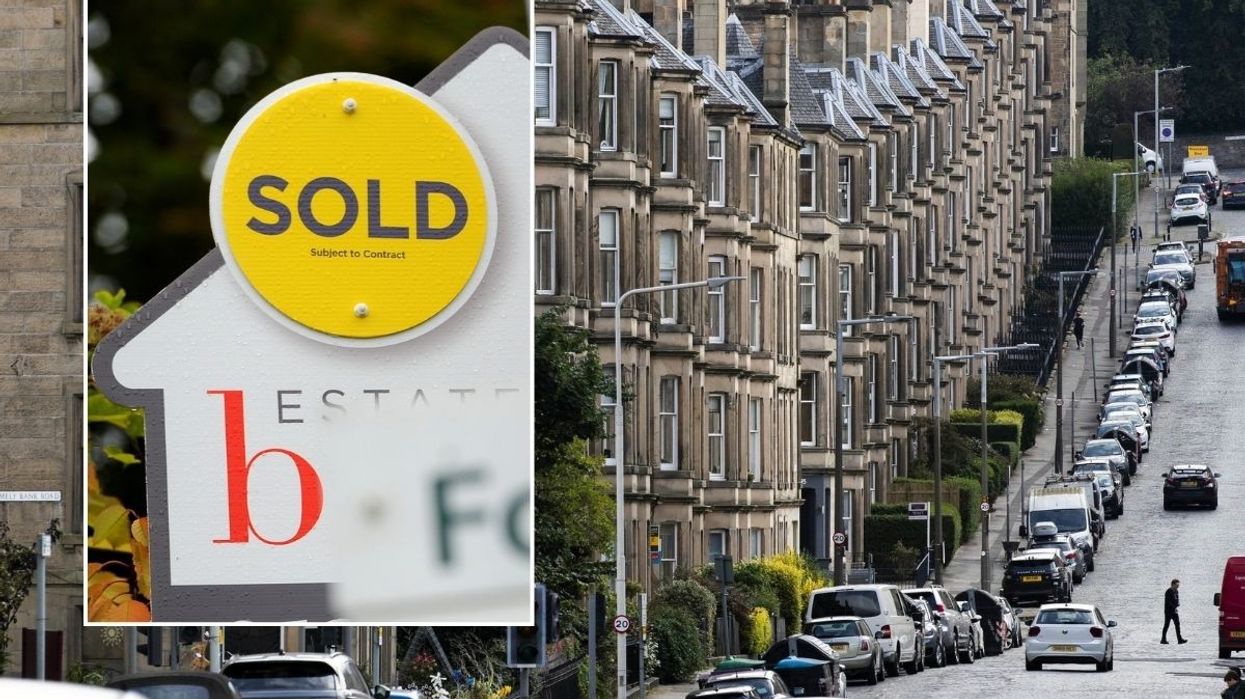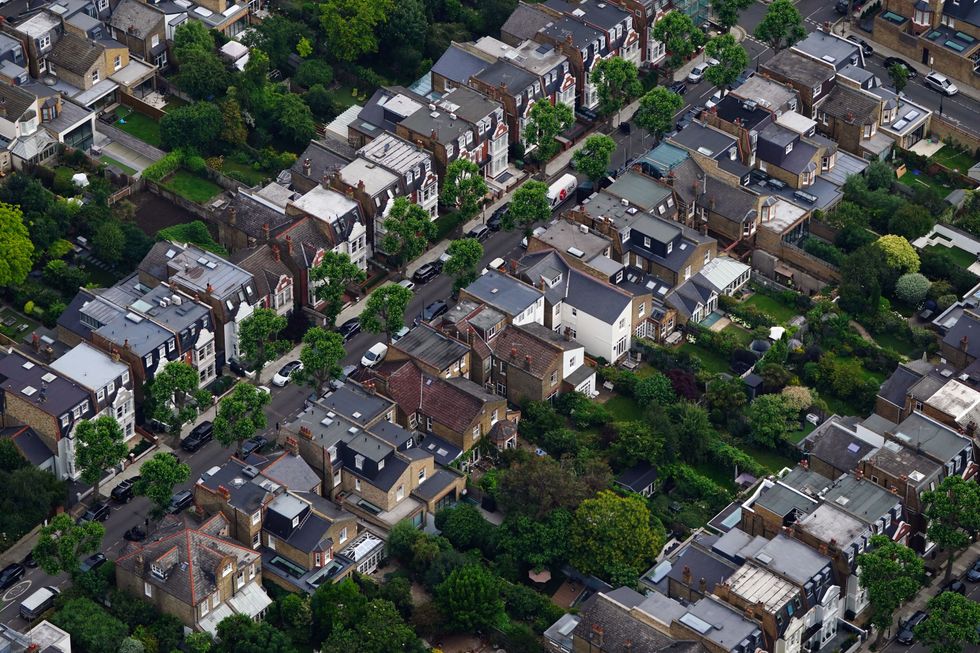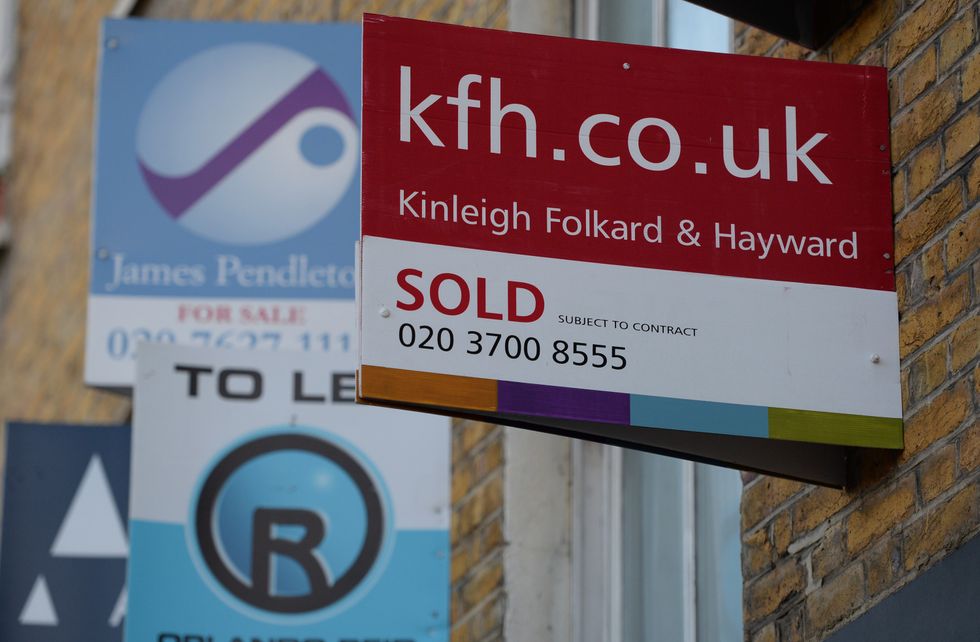What will happen to interest rates and property prices in 2024? Top economists share their predictions

The first half of the year will be telling of the country's prospects of returning to growth
|PA

Several unknowns could tip the scale one way or another in the coming months
Don't Miss
Most Read
There is no shortage of viewpoints on predictions for the economy in 2024, but uncertainty still looms large.
Despite recent confirmation that the UK slipped into recession in the fourth quarter of 2023, the mood around the economy is improving.
However, the burning question remains how low inflation will fall before the interest rates follow suit.
To help draw the picture, GB News reached out to top economists for their outlook on the likely direction of interest rates and property prices.

Mortgage rates are enjoyable stability at present
|GETTY
The conviction that interest rates will remain high is widespread, meaning households and companies could have to pay more to borrow.
Where interest rates on mortgages remain fixed, however, borrowers will be exempt from rate rises if they do not move home.
But the current bank rate of 5.25 per cent is fuelling a nationwide struggle for families and businesses.
Tariffs on mortgages, loans and savings have been at their highest level for many years, with the Bank of England putting up the base rate 14 times in the past two years alone.
Mixed outlooks from banks have further stirred uncertainty across the market.
The good news is that newfound stability in mortgage rates is already offered some respite.
Dr Roger Gewolb, a broadcaster and geopolitics/economics and money who has previously advised the Bank of England and the UK Treasury, believes cuts are on the way - but not just yet.
He told GB News: “Unfortunately, the Bank of England is likely to hold interest rates higher for somewhat longer.
“During the last bank meeting, the decision was made to maintain the rate at 5.25 per cent again, but for the first time since the 2020 Covid pandemic, one member of the Monetary Policy Committee voted for a cut - asking for rates to go down to five per cent.
“I bet that the cuts could come this year in late spring May or June, and the bank could implement five consecutive 25 basis point interest rate cuts by the end of this year.”
This will likely have a ripple effect on all borrowing sectors, bringing long-awaited relief to mortgage holders currently burdened with sky-high costs.
It should also be noted that lower interest rates go hand in hand with a booming housing market, meaning that even when rates do fall, an increase in demand will subsequently drive up home prices.
Of course, buying a home represents a hefty financial commitment regardless of background or age, and with ongoing uncertainties in the economy, caution is warranted.
“Unnecessarily high interest rates have already caused enough damage to the mortgage market for lenders to drop their rates to get business volumes back to acceptable levels,” explained Dr Gewolb.
“This has brought a positive outlook for buyers and the average two-year fixed mortgage rate for UK borrowers has dropped at the fastest monthly rate since the end of 2022.”
As a result, division in the housing market has grown. Accurately priced homes are being claimed at breakneck speed while pricier ones are left unsold.
Borrowing costs and high inflation have largely contributed to these hurdles, but with both showing signs of subsiding, the prospects for the later 2024 could be brighter.
While forecasts of this nature are welcomed, however, they could be undermined by global events.
Political parties could sway the behaviour of home buyers too. With a general election due next January, the months leading up to the event could prove decisive for home buyers.
Dr Gewob continued: “The recent drop in mortgage rates has instilled a sense of confidence and hope among buyers, as the rates have settled and remained stable, but this could change very soon with a general election looming.
LATEST DEVELOPMENTS

Property prices may fall if Labour wins the next election
|PA
“I predict that if Labour gets in, property prices will surely fall, at least in the short to medium term.”
Martin Beck, chief economic adviser for the EY Item Club, echoes several of Dr Gewolb's predictions, forecasting a base rate decrease to four per cent by the end of the year as long as geopolitical tensions don’t erupt.
“Ongoing geopolitical tensions could push up energy prices which may slow the decline of inflation and increase costs for households and business,” he told the Guardian.
Of course, these influences are just one piece of the puzzle. A multitude of factors could sway energy prices upward and hinder the flow of inflation.
While both experts believe the Bank of England is poised to reduce interest rates, the extent and timing of these cuts are shrouded in uncertainty.
But in the unexpected event that base rates rise further, the projections may not be as dire as one may expect.
At least this is the belief held by Andrew Gosselin, senior editor at the Calculator Site. He explained: “A gradual increase in base rates by the Bank of England should not severely restrict demand across markets so long as the broader economy maintains a positive trajectory.”
“I project that commercial real estate values will experience gradual appreciation in alignment with broader recovery trends in the UK property market!”
Not everyone is as optimistic, however.
Keith Donovan, a start-up advisor and founder of Startup Stumbles, believes that interest rates could continue to see upward trends in leading economies as they aggressively fight inflation.
While this could sobering for real estate giants, it may benefit start-ups. Keith explained: “For founders, this could create opportunity among more reasonably priced properties now sitting on the sidelines waiting for rate uncertainty.”
The first half of the year will no doubt be very telling of the country’s prospects of returning to growth.
Whether interest rates will improve or not is debatable. What isn’t, is that inflation is set to shape economic conditions.










